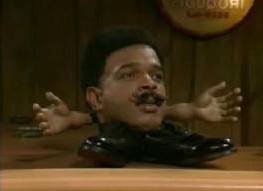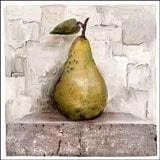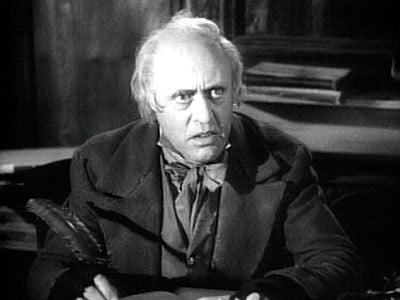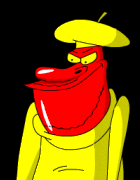| Author |
 Topic Search Topic Search  Topic Options Topic Options
|
CCVP 
Prog Reviewer


Joined: September 15 2007
Location: Vitória, Brasil
Status: Offline
Points: 7971
|
 Posted: January 15 2011 at 20:23 Posted: January 15 2011 at 20:23 |
|
That's the problem with English, its too much of an imprecise language.
|
|
|
 |
Dean 
Special Collaborator


Retired Admin and Amateur Layabout
Joined: May 13 2007
Location: Europe
Status: Offline
Points: 37575
|
 Posted: January 15 2011 at 20:35 Posted: January 15 2011 at 20:35 |
I know you were 
After all, it's not the Engs it's the Englas, with the actual name originally being "Engla-land" (not "Enga-land" as some no-neck football hooligans would be prone to chant). Engla is of course related to Anglais, or Crème Anglais - a crème pâtissière or confectioner's custard whose name comes from the latin Angulus, meaning "a corner" because the pâtissière that invented this custard was usually situated on the corner of the main street. The Gauls (original inhabitants of the land now known as France and not the Franks, who were in fact German, nor the Normans, who also came from Germany, along with the original Angles who came from Jutland - however the mighty Saxon came from Barnsley) added their word for "ground", (which for those not paying attention, is "terre" named after the apples that grow in "the ground" [or "potato" as it is properly pronounced]), making "Angle-terre" as their name for the island of peoples who like to sit in "a corner" while partaking of their favourite pastimes of eating cream custard, (in the form of custard cream bisquits), fishing and measuring the circular displacement of two lines sharing a common vertex, from where we get the two modern words of "Angling" and "Angles" [it should be noted that the famous book by Izzak Walton entitled "The Compleat Angler" is a total misnomer and has nothing what so ever to do with trigonometry, at least none that I could find and I skimmed it twice, in both directions, unless he was refering to the angle subtended by the fishing-line and the surface of the lake/pond]. One interesting fact regarding the Englas is three of them together make a triangle, (whose sides are traditionally labelled "E", "L" and "P" accordingly), which any Prog music aficionado will know is a vital piece of equipment in a modern percussionists arsenal of percussion instruments, and thus the Engla-ish invented the modern symphony orchestra from it's humble beginnings as a bell-like instrument made from a piece of chromium plated brass tube bent into the shape of an isosceles triangle and used by Mike Oldfield for his seminal album and several less than seminal ones - of course a brass tube without the unnecessary bending forms another vital part of the modern symphony orchestra in the form of the cor anglais (etymologically the "cor" is derived from the apple in "pomme de terre" making the whole derivation circular and self-referential). It's worth noting at this point that Isosceles was a famous Roman general who invaded Bretagne (now modern Britney) somewhere between 1CE and teatime, famous of course for having a head shaped like a square-based pyramid. It should also be noted that Bretagne (now modern Britney ~ famed for the manufacture of lances and javelins) was once known as Little Britain while Engla-land (and it's associated kingdoms) were known as Grande-Bretagne. Over time Engla-land became shortened by removing the superfluous "la" (french for "the", but the soft girlie "the" ... also a note to follow "so") - musicologically this is incorrect - to create the correct cadence the "eng" should have been replaced by "so", however the resulting "So-la-land" would have been an oxymoron given the annual number of sunny days annually experienced on the island each year. Transposing the lead note a whole tone (or two semi-tones if you prefer) gives a more accurate and descriptive solution, leaving us with "La-la-land".
I rest my case.
Edited by Dean - January 15 2011 at 20:54
|
|
What?
|
 |
Atavachron 
Special Collaborator


Honorary Collaborator
Joined: September 30 2006
Location: Pearland
Status: Offline
Points: 64353
|
 Posted: January 15 2011 at 20:46 Posted: January 15 2011 at 20:46 |
|
I do wish you'd listen, Wymer. It's perfectly
simple. If you're not getting your hair cut, you don't have to move your
brother's clothes down to the lower peg. You simply collect his note
before lunch, after you've done your scripture prep, when you've written
your letter home, before rest, move your own clothes onto the lower peg,
greet the visitors, and report to Mr. Viney that you've had your chit
signed.
|
 |
ExittheLemming 
Forum Senior Member


Joined: October 19 2007
Location: Penal Colony
Status: Offline
Points: 11415
|
 Posted: January 16 2011 at 00:09 Posted: January 16 2011 at 00:09 |
 Dean wrote: Dean wrote:
After all, it's not the Engs it's the Englas, with the actual name originally being "Engla-land" (not "Enga-land" as some no-neck football hooligans would be prone to chant). Engla is of course related to Anglais, or Crème Anglais - a crème pâtissière or confectioner's custard whose name comes from the latin Angulus, meaning "a corner" because the pâtissière that invented this custard was usually situated on the corner of the main street. The Gauls (original inhabitants of the land now known as France and not the Franks, who were in fact German, nor the Normans, who also came from Germany, along with the original Angles who came from Jutland - however the mighty Saxon came from Barnsley) added their word for "ground", (which for those not paying attention, is "terre" named after the apples that grow in "the ground" [or "potato" as it is properly pronounced]), making "Angle-terre" as their name for the island of peoples who like to sit in "a corner" while partaking of their favourite pastimes of eating cream custard, (in the form of custard cream bisquits), fishing and measuring the circular displacement of two lines sharing a common vertex, from where we get the two modern words of "Angling" and "Angles" [it should be noted that the famous book by Izzak Walton entitled "The Compleat Angler" is a total misnomer and has nothing what so ever to do with trigonometry, at least none that I could find and I skimmed it twice, in both directions, unless he was refering to the angle subtended by the fishing-line and the surface of the lake/pond]. One interesting fact regarding the Englas is three of them together make a triangle, (whose sides are traditionally labelled "E", "L" and "P" accordingly), which any Prog music aficionado will know is a vital piece of equipment in a modern percussionists arsenal of percussion instruments, and thus the Engla-ish invented the modern symphony orchestra from it's humble beginnings as a bell-like instrument made from a piece of chromium plated brass tube bent into the shape of an isosceles triangle and used by Mike Oldfield for his seminal album and several less than seminal ones - of course a brass tube without the unnecessary bending forms another vital part of the modern symphony orchestra in the form of the cor anglais (etymologically the "cor" is derived from the apple in "pomme de terre" making the whole derivation circular and self-referential). It's worth noting at this point that Isosceles was a famous Roman general who invaded Bretagne (now modern Britney) somewhere between 1CE and teatime, famous of course for having a head shaped like a square-based pyramid. It should also be noted that Bretagne (now modern Britney ~ famed for the manufacture of lances and javelins) was once known as Little Britain while Engla-land (and it's associated kingdoms) were known as Grande-Bretagne. Over time Engla-land became shortened by removing the superfluous "la" (french for "the", but the soft girlie "the" ... also a note to follow "so") - musicologically this is incorrect - to create the correct cadence the "eng" should have been replaced by "so", however the resulting "So-la-land" would have been an oxymoron given the annual number of sunny days annually experienced on the island each year. Transposing the lead note a whole tone (or two semi-tones if you prefer) gives a more accurate and descriptive solution, leaving us with "La-la-land".
I rest my case.
|
Despite the camouflage of Dean's humour, I'll wager most of the above has more than a vestige of truth. 
|
 |
darkshade 
Collaborator


Honorary Collaborator
Joined: November 19 2005
Location: New Jersey
Status: Offline
Points: 10964
|
 Posted: January 16 2011 at 02:24 Posted: January 16 2011 at 02:24 |
|
the word dijon has been used so much in this thread, i crave a sangwhich
|
|
|
 |
Snow Dog 
Special Collaborator


Honorary Collaborator
Joined: March 23 2005
Location: Caerdydd
Status: Offline
Points: 32995
|
 Posted: January 16 2011 at 04:48 Posted: January 16 2011 at 04:48 |
 CCVP wrote: CCVP wrote:
That's the problem with English, its too much of an imprecise language.
|
The opposite is true.
|
|
|
 |
Snow Dog 
Special Collaborator


Honorary Collaborator
Joined: March 23 2005
Location: Caerdydd
Status: Offline
Points: 32995
|
 Posted: January 16 2011 at 04:51 Posted: January 16 2011 at 04:51 |
 ExittheLemming wrote: ExittheLemming wrote:
 Dean wrote: Dean wrote:
After all, it's not the Engs it's the Englas, with the actual name originally being "Engla-land" (not "Enga-land" as some no-neck football hooligans would be prone to chant). Engla is of course related to Anglais, or Crème Anglais - a crème pâtissière or confectioner's custard whose name comes from the latin Angulus, meaning "a corner" because the pâtissière that invented this custard was usually situated on the corner of the main street. The Gauls (original inhabitants of the land now known as France and not the Franks, who were in fact German, nor the Normans, who also came from Germany, along with the original Angles who came from Jutland - however the mighty Saxon came from Barnsley) added their word for "ground", (which for those not paying attention, is "terre" named after the apples that grow in "the ground" [or "potato" as it is properly pronounced]), making "Angle-terre" as their name for the island of peoples who like to sit in "a corner" while partaking of their favourite pastimes of eating cream custard, (in the form of custard cream bisquits), fishing and measuring the circular displacement of two lines sharing a common vertex, from where we get the two modern words of "Angling" and "Angles" [it should be noted that the famous book by Izzak Walton entitled "The Compleat Angler" is a total misnomer and has nothing what so ever to do with trigonometry, at least none that I could find and I skimmed it twice, in both directions, unless he was refering to the angle subtended by the fishing-line and the surface of the lake/pond]. One interesting fact regarding the Englas is three of them together make a triangle, (whose sides are traditionally labelled "E", "L" and "P" accordingly), which any Prog music aficionado will know is a vital piece of equipment in a modern percussionists arsenal of percussion instruments, and thus the Engla-ish invented the modern symphony orchestra from it's humble beginnings as a bell-like instrument made from a piece of chromium plated brass tube bent into the shape of an isosceles triangle and used by Mike Oldfield for his seminal album and several less than seminal ones - of course a brass tube without the unnecessary bending forms another vital part of the modern symphony orchestra in the form of the cor anglais (etymologically the "cor" is derived from the apple in "pomme de terre" making the whole derivation circular and self-referential). It's worth noting at this point that Isosceles was a famous Roman general who invaded Bretagne (now modern Britney) somewhere between 1CE and teatime, famous of course for having a head shaped like a square-based pyramid. It should also be noted that Bretagne (now modern Britney ~ famed for the manufacture of lances and javelins) was once known as Little Britain while Engla-land (and it's associated kingdoms) were known as Grande-Bretagne. Over time Engla-land became shortened by removing the superfluous "la" (french for "the", but the soft girlie "the" ... also a note to follow "so") - musicologically this is incorrect - to create the correct cadence the "eng" should have been replaced by "so", however the resulting "So-la-land" would have been an oxymoron given the annual number of sunny days annually experienced on the island each year. Transposing the lead note a whole tone (or two semi-tones if you prefer) gives a more accurate and descriptive solution, leaving us with "La-la-land".
I rest my case.
|
Despite the camouflage of Dean's humour, I'll wager most of the above has more than a vestige of truth.
|
More than a vestige. 
|
|
|
 |
popeyethecat 
Forum Senior Member


Joined: March 04 2008
Location: England
Status: Offline
Points: 190
|
 Posted: January 16 2011 at 04:55 Posted: January 16 2011 at 04:55 |
 clarke2001 wrote: clarke2001 wrote:
On an unrelated note, when I was 10 years old, I thought Firestone (American tyre company) was Italian and I was pronouncing it as such.
|
That's adorable 
|
|
|
 |
Formentera Lady 
Forum Senior Member


Joined: August 20 2010
Location: Germany
Status: Offline
Points: 1768
|
 Posted: January 16 2011 at 06:38 Posted: January 16 2011 at 06:38 |
 Snow Dog wrote: Snow Dog wrote:
 ExittheLemming wrote: ExittheLemming wrote:
 Dean wrote: Dean wrote:
After all, it's not the Engs it's the Englas, with the actual name originally being "Engla-land" (not "Enga-land" as some no-neck football hooligans would be prone to chant). Engla is of course related to Anglais, or Crème Anglais - a crème pâtissière or confectioner's custard whose name comes from the latin Angulus, meaning "a corner" because the pâtissière that invented this custard was usually situated on the corner of the main street. The Gauls (original inhabitants of the land now known as France and not the Franks, who were in fact German, nor the Normans, who also came from Germany, along with the original Angles who came from Jutland - however the mighty Saxon came from Barnsley) added their word for "ground", (which for those not paying attention, is "terre" named after the apples that grow in "the ground" [or "potato" as it is properly pronounced]), making "Angle-terre" as their name for the island of peoples who like to sit in "a corner" while partaking of their favourite pastimes of eating cream custard, (in the form of custard cream bisquits), fishing and measuring the circular displacement of two lines sharing a common vertex, from where we get the two modern words of "Angling" and "Angles" [it should be noted that the famous book by Izzak Walton entitled "The Compleat Angler" is a total misnomer and has nothing what so ever to do with trigonometry, at least none that I could find and I skimmed it twice, in both directions, unless he was refering to the angle subtended by the fishing-line and the surface of the lake/pond]. One interesting fact regarding the Englas is three of them together make a triangle, (whose sides are traditionally labelled "E", "L" and "P" accordingly), which any Prog music aficionado will know is a vital piece of equipment in a modern percussionists arsenal of percussion instruments, and thus the Engla-ish invented the modern symphony orchestra from it's humble beginnings as a bell-like instrument made from a piece of chromium plated brass tube bent into the shape of an isosceles triangle and used by Mike Oldfield for his seminal album and several less than seminal ones - of course a brass tube without the unnecessary bending forms another vital part of the modern symphony orchestra in the form of the cor anglais (etymologically the "cor" is derived from the apple in "pomme de terre" making the whole derivation circular and self-referential). It's worth noting at this point that Isosceles was a famous Roman general who invaded Bretagne (now modern Britney) somewhere between 1CE and teatime, famous of course for having a head shaped like a square-based pyramid. It should also be noted that Bretagne (now modern Britney ~ famed for the manufacture of lances and javelins) was once known as Little Britain while Engla-land (and it's associated kingdoms) were known as Grande-Bretagne. Over time Engla-land became shortened by removing the superfluous "la" (french for "the", but the soft girlie "the" ... also a note to follow "so") - musicologically this is incorrect - to create the correct cadence the "eng" should have been replaced by "so", however the resulting "So-la-land" would have been an oxymoron given the annual number of sunny days annually experienced on the island each year. Transposing the lead note a whole tone (or two semi-tones if you prefer) gives a more accurate and descriptive solution, leaving us with "La-la-land".
I rest my case.
|
Despite the camouflage of Dean's humour, I'll wager most of the above has more than a vestige of truth.
|
More than a vestige.  |
You are so funny!  That's why I love to read the forum!
|
 |
Paravion 
Forum Senior Member


Joined: May 01 2010
Location: Denmark
Status: Offline
Points: 470
|
 Posted: January 16 2011 at 08:34 Posted: January 16 2011 at 08:34 |
|
There is no "the correct way" to pronounce genre. There are many pronunciations around, and no justified means or reasonable way to determine which may be the correct one.
The one I use when speaking English (or French for that matter), and the one I believe to encounter the most begins with an "sj" sound, phonetically classified as a voiced postalveolar fricative and transcribed [ ʒ ]. Fot those who speak French, it's similar to the initial sound of "gens" (people). The orthographic combination g+vowel usually result in a [ ʒ ] realization in French. For those who speak English, it's somewhat similar to the initial sound of "shower". The vovel is a prolonged nasalized open back unrounded vowel, transcribed [ ɑː ] (the diacritic symbol for the trait nasal, '~' should be added above ). In casual speak, the n is often left out, adopted in the nasality of the vowel. In my pronunciation, the vowel bears stress. The last (unstressed) syllable begins with an "r" sound that is similar to the typical English r, phonetically classified as an alveolar approximant (sometimes called semi-vowel), transcribed [ ɹ ]. The last vowel is an unstressed and very short central "schwa" sound - a 'neutral' vowel, which is pronounced while keeping your speech-organs at the default position, transcribed [ə].
|
 |
Dean 
Special Collaborator


Retired Admin and Amateur Layabout
Joined: May 13 2007
Location: Europe
Status: Offline
Points: 37575
|
 Posted: January 16 2011 at 08:55 Posted: January 16 2011 at 08:55 |
 Paravion wrote: Paravion wrote:
There is no "the correct way" to pronounce genre. There are many pronunciations around, and no justified means or reasonable way to determine which may be the correct one.
The one I use when speaking English (or French for that matter), and the one I believe to encounter the most begins with an "sj" sound, phonetically classified as a voiced postalveolar fricative and transcribed [ ʒ ]. Fot those who speak French, it's similar to the initial sound of "gens" (people). The orthographic combination g+vowel usually result in a [ ʒ ] realization in French. For those who speak English, it's somewhat similar to the initial sound of "shower". The vovel is a prolonged nasalized open back unrounded vowel, transcribed [ ɑː ] (the diacritic symbol for the trait nasal, '~' should be added above ). In casual speak, the n is often left out, adopted in the nasality of the vowel. In my pronunciation, the vowel bears stress. The last (unstressed) syllable begins with an "r" sound that is similar to the typical English r, phonetically classified as an alveolar approximant (sometimes called semi-vowel), transcribed [ ɹ ]. The last vowel is an unstressed and very short central "schwa" sound - a 'neutral' vowel, which is pronounced while keeping your speech-organs at the default position, transcribed [ə]. |
 I've always struggled with dictionary pronouciations because I've never bothered to find out what (for example) ə means and how you pronounce "ɹə" is dependant on how you pronounce it in other words like the "a" in temperature for example, which can be dialect dependant. Nice explanation Mr Paravion.
|
|
What?
|
 |
Bonnek 
Special Collaborator


Honorary Collaborator
Joined: September 01 2009
Location: Belgium
Status: Offline
Points: 4515
|
 Posted: January 16 2011 at 14:58 Posted: January 16 2011 at 14:58 |
English makes no sense at all, famous example is how you have to pronounce "ghoti" as "fish"
gh, pronounced /f/ as in tough /tʌf/
o, pronounced /ɪ/ as in women /ˈwɪmɪn/ti, pronounced /ʃ/ as in nation /ˈne͡ɪʃən/so in English "genre" can lead to any random prononciation. Learn French guys, that's where half of your words come from 
|
 |
akamaisondufromage 
Forum Senior Member


VIP Member
Joined: May 16 2009
Location: Blighty
Status: Offline
Points: 6797
|
 Posted: January 16 2011 at 15:05 Posted: January 16 2011 at 15:05 |
Well exactly. Its French innit? Used when one would like to sound intelligent.
|
|
Help me I'm falling!
|
 |
harmonium.ro 
Special Collaborator

Honorary Collaborator / Retired Admin
Joined: August 18 2008
Location: Anna Calvi
Status: Offline
Points: 22989
|
 Posted: January 16 2011 at 15:33 Posted: January 16 2011 at 15:33 |
 CCVP wrote: CCVP wrote:
That's the problem with English, its too much of an imprecise language.
|
You mean that the ortography of English is not phonemic, but that doesn't make it imprecise. I love that my native language (Romanian) is the most phonemic language I know, which gives it a great clarity and makes it easy to learn. One letter can only be pronounced one way, and once you've learn them, there are no special cases to keep in mind.
|
 |
CPicard 
Forum Senior Member


Joined: October 03 2008
Location: Là, sui monti.
Status: Offline
Points: 10837
|
 Posted: January 16 2011 at 15:44 Posted: January 16 2011 at 15:44 |
 harmonium.ro wrote: harmonium.ro wrote:
 CCVP wrote: CCVP wrote:
That's the problem with English, its too much of an imprecise language.
|
You mean that the ortography of English is not phonemic, but that doesn't make it imprecise.
I love that my native language (Romanian) is the most phonemic language I know, which gives it a great clarity and makes it easy to learn. One letter can only be pronounced one way, and once you've learn them, there are no special cases to keep in mind.
|
Oh, fine, I will try to learn it one of these days. I hope it to be more understandable for me than German (sorry, Karl, sorry, Ralf, sorry, Florian, but I don't get your grammar!) By the way, don't fool yourselves, guys: the French language is a bitch. "Seau", "sot", "sceau" or "saut" are pronounced the same way. You could even have hard times with "parler" (to speak), "ils parlaient" (they spoke) or "il parlait" (he spoke): same pronounciation again!
|
 |
Lizzy 
Forum Senior Member


VIP Member
Joined: March 15 2010
Location: Schnitzelland
Status: Offline
Points: 4675
|
 Posted: January 16 2011 at 15:48 Posted: January 16 2011 at 15:48 |
 harmonium.ro wrote: harmonium.ro wrote:
 CCVP wrote: CCVP wrote:
That's the problem with English, its too much of an imprecise language.
|
You mean that the ortography of English is not phonemic, but that doesn't make it imprecise.
I love that my native language (Romanian) is the most phonemic language I know, which gives it a great clarity and makes it easy to learn. One letter can only be pronounced one way, and once you've learn them, there are no special cases to keep in mind.
|
Ahem: ce, ci, ge, gi, che, chi, ghe, ghi. :P Russian is also pretty phonemic as well. Anyway, genre is pronounced just like in French, but with a very posh British accent.
|
Property of Queen Productions... 
|
 |
Icarium 
Forum Senior Member


VIP Member
Joined: March 21 2008
Location: Tigerstaden
Status: Offline
Points: 34050
|
 Posted: January 16 2011 at 15:57 Posted: January 16 2011 at 15:57 |
|
ok, how many can pronounce Ejafjallajökul, the people at CNN, FOX news and CBS news failed misserable at that
|
|
|
 |
Icarium 
Forum Senior Member


VIP Member
Joined: March 21 2008
Location: Tigerstaden
Status: Offline
Points: 34050
|
 Posted: January 16 2011 at 16:07 Posted: January 16 2011 at 16:07 |
I did not know the right pronounsiation for the word Collonel before last spring, or so.
I mostly said it as it was written not in the actual way to say it, which is körnel
|
|
|
 |
CPicard 
Forum Senior Member


Joined: October 03 2008
Location: Là, sui monti.
Status: Offline
Points: 10837
|
 Posted: January 16 2011 at 16:33 Posted: January 16 2011 at 16:33 |
 aginor wrote: aginor wrote:
ok, how many can pronounce Ejafjallajökul, the people at CNN, FOX news and CBS news failed misserable at that |
We don't pronounce it: we suffer it.
|
 |
ExittheLemming 
Forum Senior Member


Joined: October 19 2007
Location: Penal Colony
Status: Offline
Points: 11415
|
 Posted: January 16 2011 at 16:43 Posted: January 16 2011 at 16:43 |
|
|
 |
/PAlogo_v2.gif)




 Posted: January 15 2011 at 20:23
Posted: January 15 2011 at 20:23






 Posted: January 15 2011 at 20:35
Posted: January 15 2011 at 20:35



 Posted: January 15 2011 at 20:46
Posted: January 15 2011 at 20:46



 Posted: January 16 2011 at 00:09
Posted: January 16 2011 at 00:09




 Posted: January 16 2011 at 02:24
Posted: January 16 2011 at 02:24



 Posted: January 16 2011 at 04:48
Posted: January 16 2011 at 04:48



 Posted: January 16 2011 at 04:51
Posted: January 16 2011 at 04:51




 Posted: January 16 2011 at 04:55
Posted: January 16 2011 at 04:55





 Posted: January 16 2011 at 06:38
Posted: January 16 2011 at 06:38 That's why I love to read the forum!
That's why I love to read the forum!



 Posted: January 16 2011 at 08:34
Posted: January 16 2011 at 08:34



 Posted: January 16 2011 at 08:55
Posted: January 16 2011 at 08:55



 Posted: January 16 2011 at 14:58
Posted: January 16 2011 at 14:58




 Posted: January 16 2011 at 15:05
Posted: January 16 2011 at 15:05


 Posted: January 16 2011 at 15:33
Posted: January 16 2011 at 15:33



 Posted: January 16 2011 at 15:44
Posted: January 16 2011 at 15:44



 Posted: January 16 2011 at 15:48
Posted: January 16 2011 at 15:48




 Posted: January 16 2011 at 15:57
Posted: January 16 2011 at 15:57





 Posted: January 16 2011 at 16:07
Posted: January 16 2011 at 16:07





 Posted: January 16 2011 at 16:33
Posted: January 16 2011 at 16:33



 Posted: January 16 2011 at 16:43
Posted: January 16 2011 at 16:43


